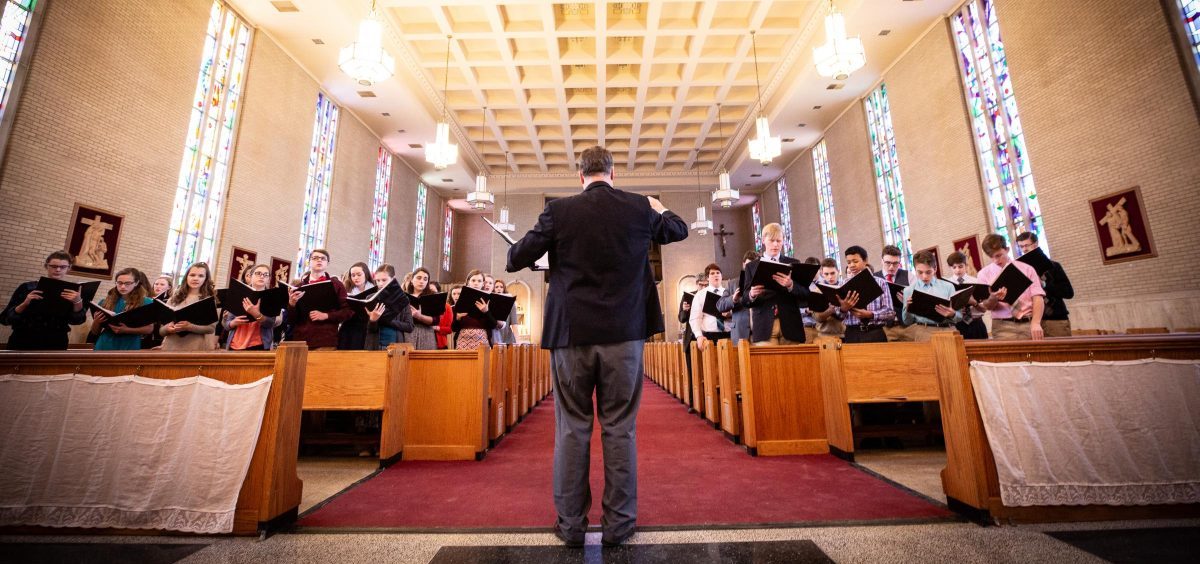News

Catholic School Sues Ohio City Over LGBTQ Protections
By: Andy Chow | Statehouse News Bureau
Posted on:
The Lyceum, a Catholic college preparatory school, is suing the city of South Euclid for its anti-discrimination laws protecting LGBTQ people. The school’s attorney says, making sexual orientation and gender identity protected classes, threatens The Lyceum’s religious freedom.
Christiana Holcomb with the Alliance Defending Freedom represents The Lyceum. She says the law counters some of the school’s core beliefs. The school says marriage is between a man and a woman, and that people were created to be male or female.
“These are religious beliefs that the school holds. These are religious beliefs that are protected under the First Amendment. And these are religious beliefs that the city of South Euclid has essentially said ‘you must give them up or be banished from operating within our city,’” says Holcomb.
South Euclid added the new provisions to its non-discrimination laws last year. Keith Benjamin, South Euclid’s director of community services, says the city’s population is diverse and they wanted to create protections that looked out for all their citizens.
Benjamin also points out that there are religious exceptions in the ordinance and he notes that education institutions are also exempt.
“So The Lyceum school is free to hire, to teach, teach its students in a manner that they see best and meets the vision and their goals of their school in any way that they wish,” Benjamin says.
In a written statement, Holcomb says, “The city should take a close look at its own law. The ordinance includes no educational exemption. And the definition of ‘advertising’ includes educational activity, so the law is clearly intended to apply to schools.”
Grant Stancliff is with Equality Ohio, the state’s largest LGBTQ advocacy group. He says these local laws are vital in protecting people from being fired, evicted, or denied public accommodations based on their sexual orientation or their gender identity. And Stancliff points out that no one has accused the school of breaking the city’s ordinance.
“As of right now, The Lyceum hasn’t run afoul of any of these laws so they’ve been able to operate under this ordinance, presumably making hiring and firing decisions without experiencing any reason for somebody to complain then the law appears to be compatible with the day-to-day operations of The Lyceum,” Stancliff says.
Holcomb says the lawsuit is a “pre-enforcement challenge” to stop the government from enforcing a law they believe to be unconstitutional.
“And frankly no American must sit around and wait for their government to impose criminal penalties or wait for them to be thrown in jail before they challenge an unjust law,” says Holcomb.
The Alliance Defending Freedom also represented Masterpiece Cakes, the bakery in Colorado accused of discriminating against a same-sex couple by refusing to provide a wedding cake. The U.S. Supreme Court found that Colorado’s civil rights commission acted hostile toward the baker but veered away from a more broad ruling.
That case was based on public accommodations, whereas The Lyceum’s would focus on hiring and admission policies.
More than 20 cities in Ohio have these types of anti-discrimination protections, and the state is considering a similar bill called the “Ohio Fairness Act.”

